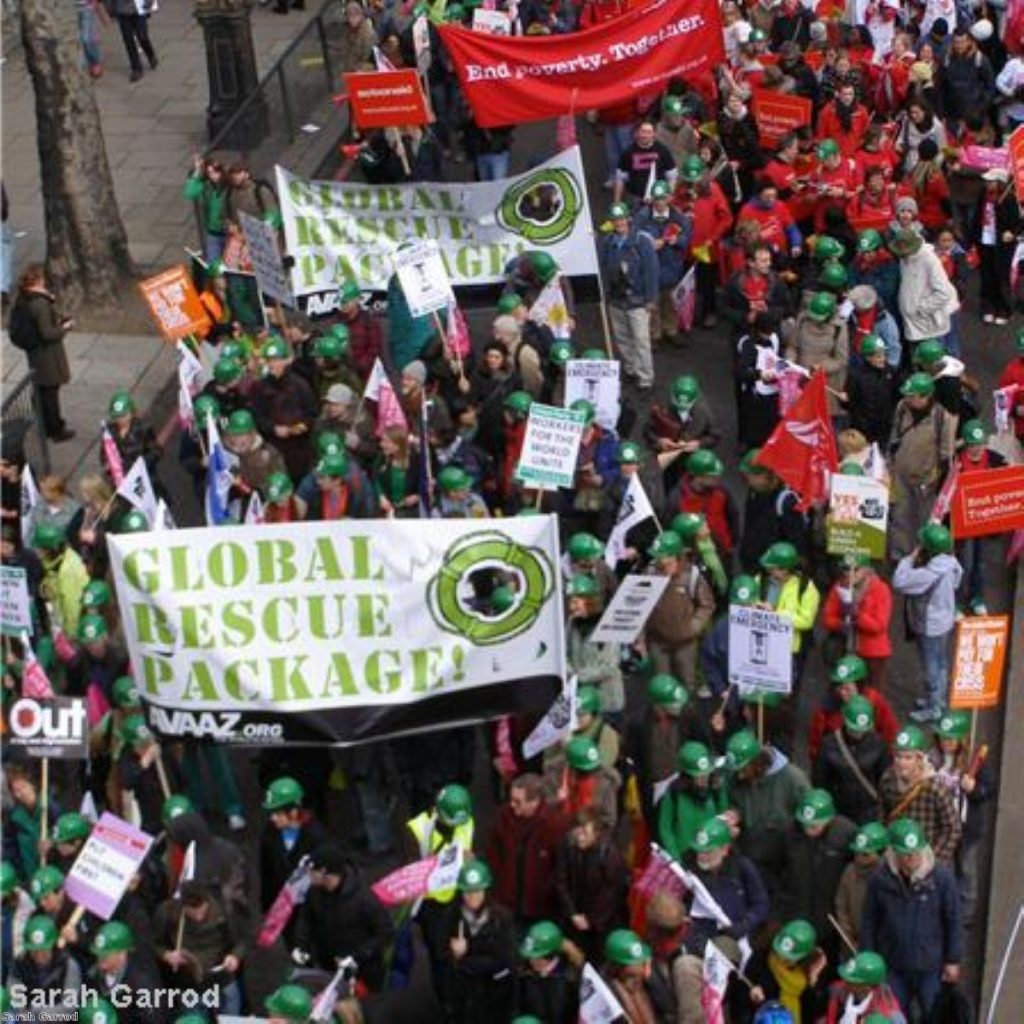Analysis: Policing’s slow drift to G20 failure
The message is clear: British police have forgotten how to do their job.
Denis O’Connor, the chief inspector of constabulary, is not a man obsessed with an impossible vision.
Yes, he remembers the utopian ideal created by Robert Peel of a tolerant, approachable, impartial police force using minimal force.


But he also acknowledges that there’s a big difference between broad commitment to this style of policing and the confrontational tactics employed in the G20 protests earlier this year.
“Style matters,” he said. “Style has been a bit absent from the conversation in the last few years. It’s been treated as a technical issue. It’s not, for the public.”
The implications of his second report on protest policing are harrowing. We were responsible for establishing the most enlightened, sensitive form of policing there is. More and more countries around the world are abandoning their aggressive approaches and turning to the British model. And yet we are the ones who have turned our backs against it.
The “hardening of British policing”, as O’Connor put it this morning, is not a sudden shift after hundreds of years of perfection. Instead adherence to the ‘British model’ has “ebbed and flowed” in recent decades. It “disappeared” to a degree in the ’60s and late ’70s and suffered “some significant ups and downs” in the ’80s.
O’Connor appeared keenest to blame the blips since then on the government.
“In the 90s and more recent times there has been a focus on targets and centralisation,” he despaired, explaining it was only the “residual” memory of “values and principles” which had kept the British model alive.
He suggested the “million other initiatives that are scattered around us” had, in a sense, distracted police leaders and caused the slow and steady decline to the G20 protests. Weighty guidance, “just not manageable”, barely mentions ‘policing by consent’, ‘Peel’ or ‘the British model’.
The result is a style of policing completely unsuited to the demands of large-scale public order events.
The changes called for by today’s report are not shifts of emphasis, or subtle variations in tone. They are about getting the policing of protest right, by fixing the problem at its root.
O’Connor’s matter-of-fact style makes his points very effectively.
Appearing formidable at an early stage of the game dominates events. The public deserve consistency between forces. Knowing the limits of the law is vital for police as well as public.
As the report shows, these simple truths have somehow slipped through the net yet again.
“We have been drifting for a long period of time,” O’Connor said.
Now police forces up and down the country must try and put that right.

